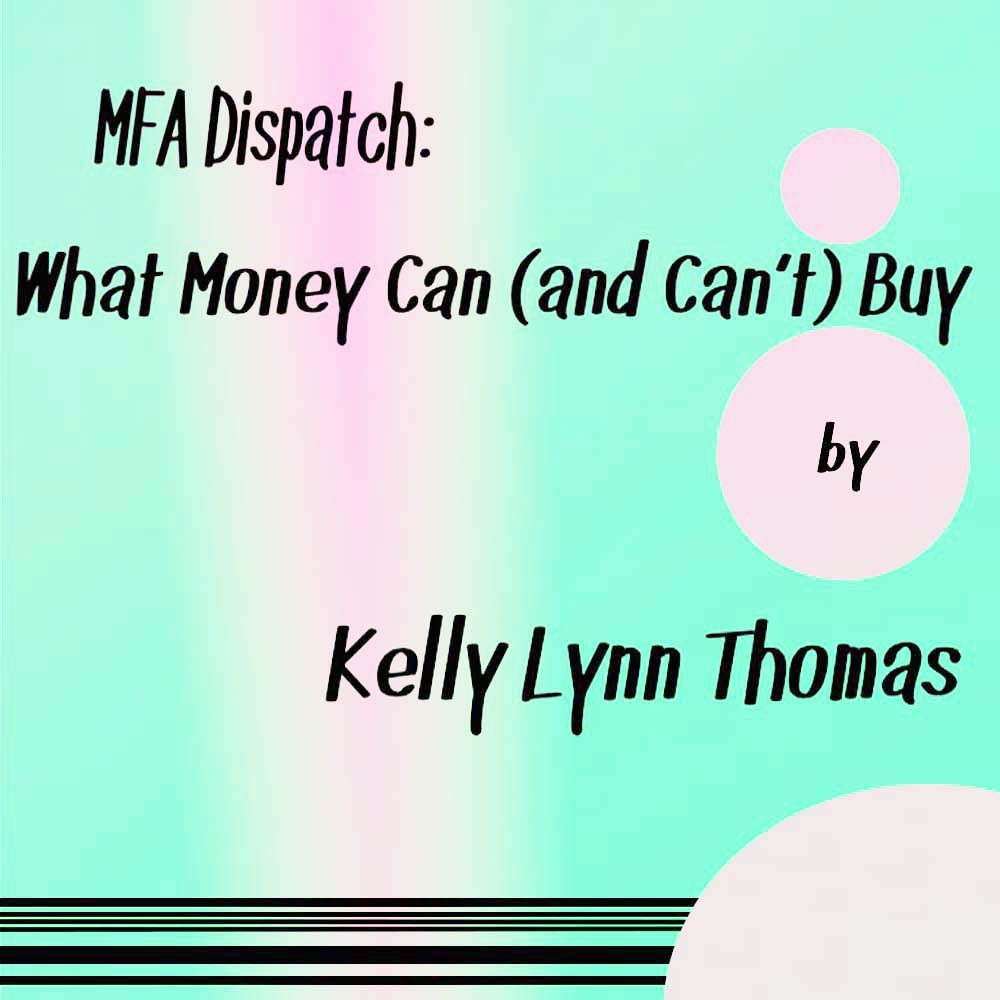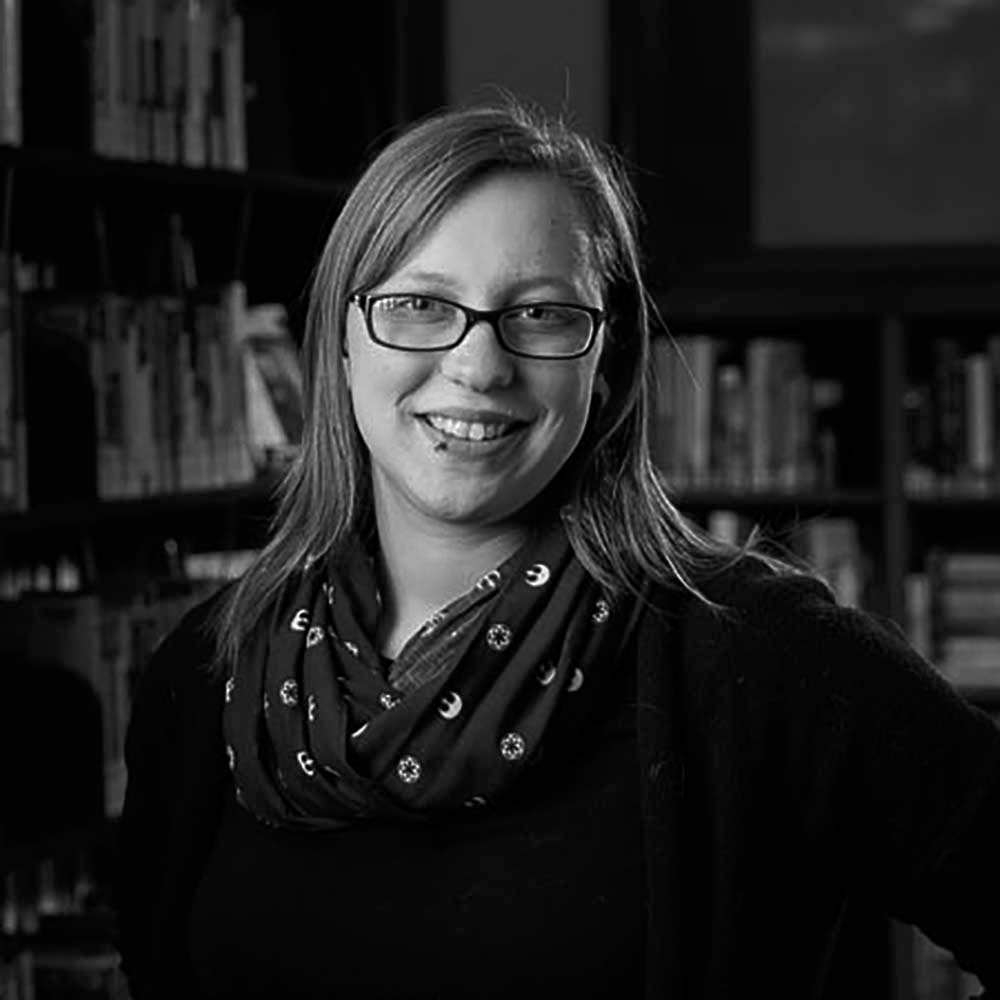And yet, hundreds of hopeful writers each year sign promissory notes so they can fund two or three years of intensive writing practice. I know, I was one of them. I graduated from college in 2009, at the height of a recession. Jobs were scarce, particularly for 22-year-old fresh-faced creative writing majors. I considered joining the Army, going so far as to take the ASVAB and explore military job assignments. I also thought about considered jumping straight into grad school. Even considered, briefly, moving back home and returning to my low-paying but reliable job at Target while I looked for something better. Ultimately, I did none of those things, at least not at first. I landed an AmeriCorps-funded job at a local newspaper and spent two years reporting on community group meetings, housing development projects, and small-time celebrities. Every morning I woke up at 6 a.m. so I could write for an hour before work. In that time, I finished a book, and started another one, but felt frustrated with what I perceived to be my lack of progress. At a certain point, I could no longer stand reporting on the same story about neighborhood tensions over and over. I looked around for another job, but the economy was still in the toilet, and deep in my heart I knew what I really wanted to do: get an MFA and become a Real Writer ™. I researched creative writing programs obsessively, checking rankings and funding levels, program offerings, the quality of the in-house literary magazines, and reviews from former students. One program in particular caught my eye. It was still relatively new, but had been making waves for its focus on nature and travel writing, and its two-week field seminars that took students all over the world. Equally important to me was the noncompetitive, supportive vibe I got from faculty and students when I visited. As a bonus, the program was in the city in which I already lived, so I wouldn’t have to take on the cost or stress of moving. After all that research, I was convinced it was the right program for me. Unfortunately, although I was accepted to the program, I wasn’t selected for any of the competitive fellowships. I applied for outside scholarship and aid, and came close to landing a big scholarship that would have paid for the whole shebang. But I didn’t get any of those, either. I had to make a choice: Try my luck elsewhere and hope for funding, or fork over the cash for the “right” program. And so—I filled out the FAFSA and signed my name on the digital dotted line for a fresh round of student loans. Was it the right thing to do? I don’t know. But I do know that I don’t regret it. While earning an MFA in fiction did not magically transform me into a Real Writer™, I did learn the most important writing lesson of all: it’s okay to fail. Being a writer means you have to actually write. And in so doing, you will fail. The trick is picking up the pen the next day anyway. Not every story needs to be Your Best Work Ever. Not everyone will like everything you write. Some people won’t like anything you write. None of it matters, as long as you keep going. You can be the most talented writer in the universe, but if you don’t sit your butt down and write, it doesn’t matter. The MFA program left me with other gifts, too. First, it reaffirmed that while being a writer is hard fucking work, it is absolutely the only thing I want to do with my life. Second, it forced me to get better. Fast. Third, it taught me how much I didn’t know and gave me the skills to keep improving long after graduation. Fourth, it allowed me the opportunity to work closely with writers I admired. Fifth, it helped me network with the larger literary community in a way I probably wouldn’t have figured out on my own. The MFA did many other things as well, some of them tangible, and some of them not so much. Throughout my program, even as I absorbed all these important life lessons, I wondered if not being selected for funding meant I wasn’t as good a writer as the people who were. Five years post-graduation, I can say with some certainty that it wasn’t the funding package that has made anyone in my cohort successful. No, it all comes back to sitting your butt in the chair and actually writing. Those from my cohort who write and submit have more successful literary careers than those who no longer pursue those activities, regardless of who got funding. It’s that simple. I do not regret paying for my MFA. It was worth every cent to me, despite the fact that I have not yet published a book, won any major literary awards, or landed a fulfilling, enjoyable, high-paying job. Still, I would hesitate to recommend anyone else follow the same path. I cannot argue the MFA is a practical degree that will lead to a six-figure salary, or even a reasonable five-figure salary, because it probably won’t. I, for one, will be paying those loans off well into my 50s or 60s (I’m in my early 30s now). Post-MFA, I’ve worked full-time in a public library and part-time in a bookstore, both of which are a ton of fun and pay very little. I teach a hodge-podge of nontraditional creative writing courses at various local colleges, and am hoping to eventually find a full-time teaching position. I don’t have a traditional career, because every job move I’ve made has been in the service of giving myself as much time as possible to write and do all the other things that go along with writing (submitting, attending literary events, volunteering at a literary magazine, etc.). Could I look for a stable job in marketing, development, or nonprofit administration? Absolutely. Would having a master’s degree in creative writing significantly increase my income for any of those jobs? Perhaps, but probably not. Don’t get me wrong—I think about giving up the adjunct life at least once a day. Sometimes I still fantasize about joining the Army. Or becoming a funeral director, or a paramedic, or an electrician, or a grant writer, or literally anything other than a fiction writer/adjunct instructor. But then I think about how far I’ve come as a writer, and all the kind and insightful things my students have said to me over the years, and I remember why I do what I do. If you look at the MFA as a financial investment, then no, it really doesn’t make sense to pay for it yourself. I never looked at my MFA as a financial investment. I viewed it as an investment in my writing career, knowing full well that the return I’d get was incredibly unlikely to be in dollars and cents. I was willing to accept that. You might also be willing to accept that. Or you might not be. And if you decide, after exploring your options and understanding what you’re getting yourself into, that you are willing to pay for an MFA, don’t feel bad about it. Don’t let anyone tell you you’re less of a writer because you didn’t get funding, or chose a program that doesn’t offer funding. An MFA can help you become a better writer and open some doors for you, but it won’t transform you into a Real Writer™, regardless of whether or not you pay for it. Only you can make that magic happen.
0 Comments
Your comment will be posted after it is approved.
Leave a Reply. |
AuthorNUNUM Archives
July 2024
Categories |




 RSS Feed
RSS Feed